
Business
07:38, 20-Jun-2017
Leung backs Greater Bay Area to lift Hong Kong higher
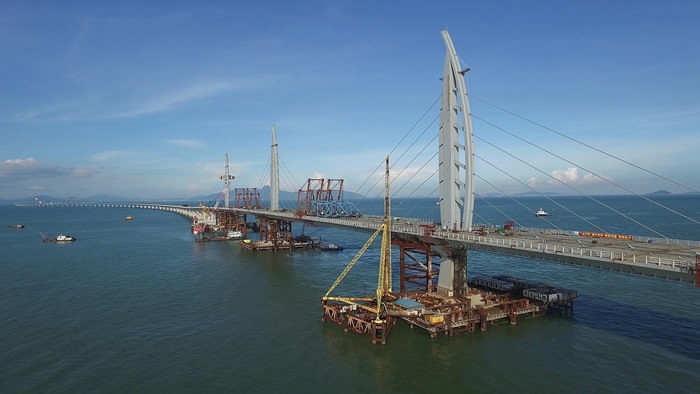
The emerging Guangdong-Hong Kong-Macao Greater Bay Area is a new "wing" for Hong Kong's development, Leung Chun-ying, chief executive of the Hong Kong Special Administrative Region (SAR) until July 1, told CGTN in a recent interview, expressing optimism about the city's future.
The idea of building a Guangdong-Hong Kong-Macao Greater Bay Area was initiated in China's 13th Five-Year Plan (2016-2020) and written into the government work report this year.
Chinese Premier Li Keqiang announced in March that the government would draw up a plan for the development of a city cluster in the Greater Bay Area, in a bid to give full play to the distinctive strengths of Hong Kong and Macao, and elevate the roles of the regions in the country's economic development.
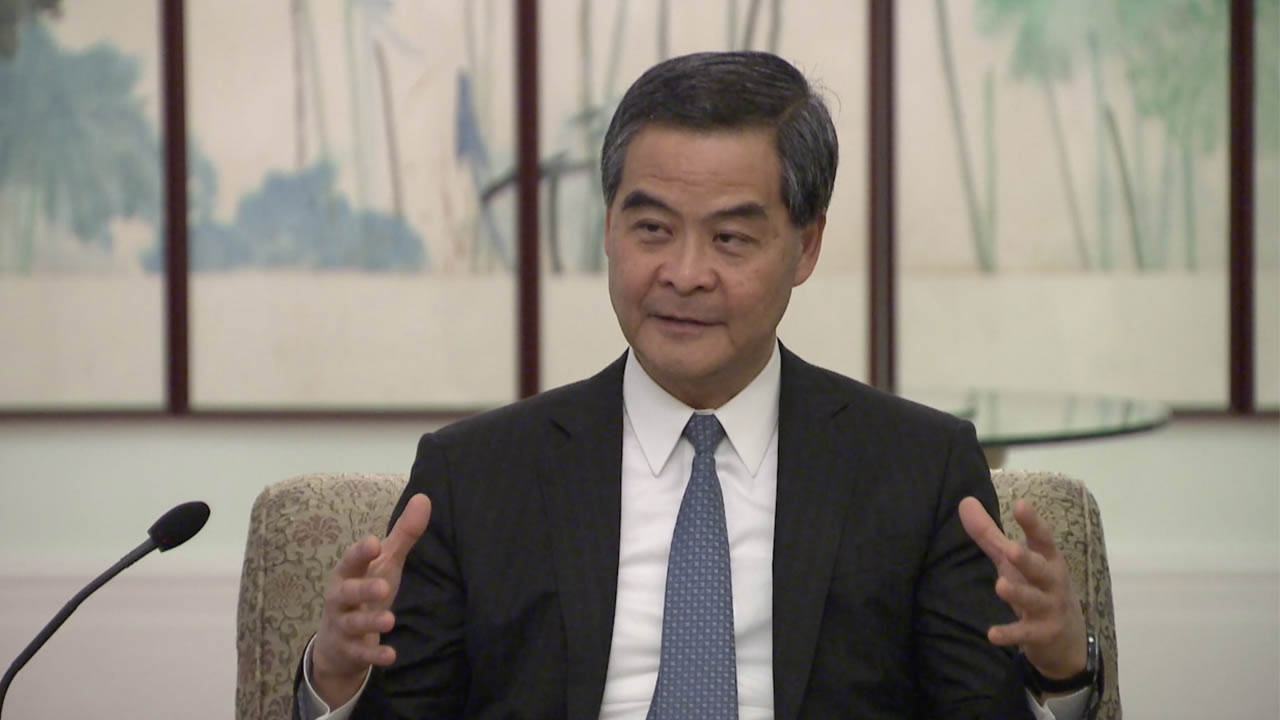
"If we consider the reform and opening up of the mainland during the past 30-plus years as a wing of Hong Kong, now we have another wing: the Greater Bay Area," Leung said.
Complementarity between Hong Kong and Pearl River Delta
Leung emphasized the potential created by the significant complementarity between Hong Kong and mainland cities in the Greater Bay Area.
"Hong Kong is a highly globalized society," he said. "Financial services, trade services and professional services are our strengths, and we can collaborate with the mainland very well."
The 62-year-old suggested that Hong Kong was a global innovation hub while its neighboring cities on the Chinese mainland were the "world's factory." Thus different cities in the Greater Bay Area can play complementary roles at different stages of the industrial chain.
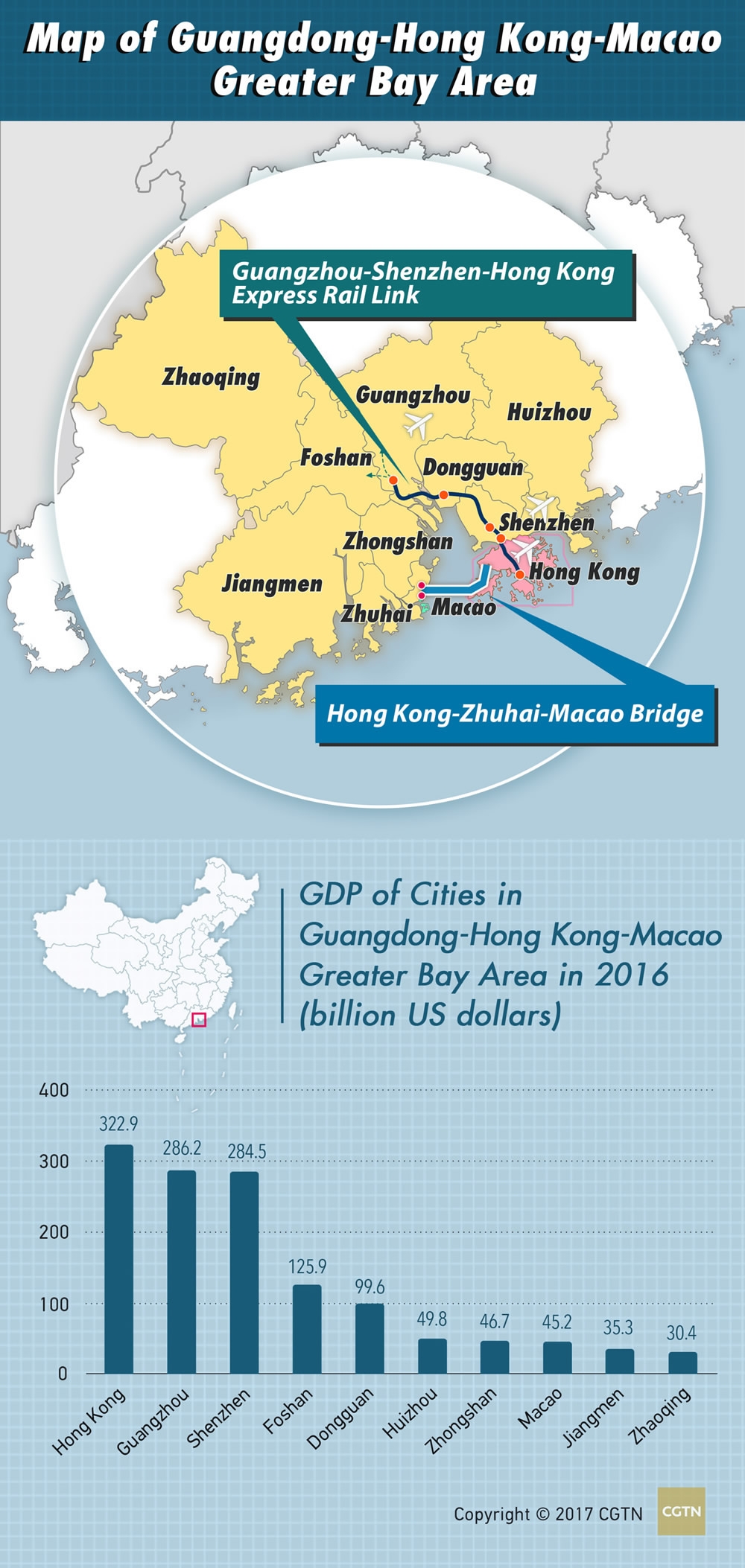
CGTN Graphic
CGTN Graphic
That was the reason the Massachusetts Institute of Technology (MIT), a world-renowned university in the United States, decided to open its first off-campus innovation center in Hong Kong in November 2015, said Leung, who took office in 2012.
The Hong Kong chief executive recalled the words of MIT representatives: "Using a metaphor, they said innovating in Hong Kong could be considered 'from zero to one;' then the stage 'from one to 100' could be completed in Shenzhen, where prototypes are made faster than anywhere else in the world; 'from 100 to a million,' referring to mass production, could be carried out in other places in the Pearl River Delta region."
Hong Kong's youth will find a lot of opportunities to advance their careers through SAR's cooperation with the mainland "in the next 30 to 40 years," Leung predicted.
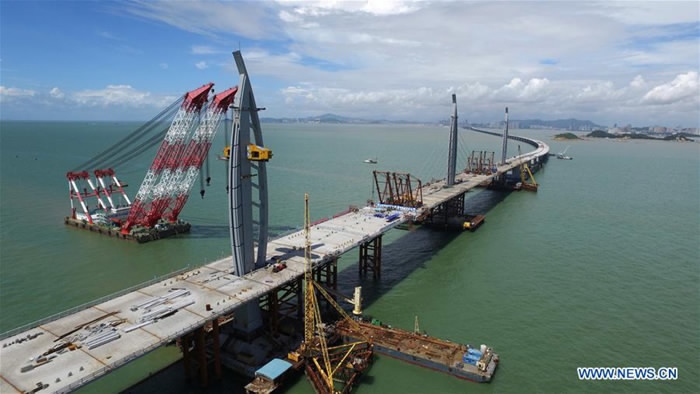
Construction work on the main bridge sections of the Hong Kong-Zhuhai-Macao Bridge, the world's longest cross-sea bridge, in Zhuhai, south China's Guangdong Province, June 29, 2016. /VCG Photo
Construction work on the main bridge sections of the Hong Kong-Zhuhai-Macao Bridge, the world's longest cross-sea bridge, in Zhuhai, south China's Guangdong Province, June 29, 2016. /VCG Photo
As a major cosmopolitan city in China, Hong Kong has a bright future in terms of social and economic development under the nation's Greater Bay Area strategy and Belt and Road Initiative, he added.
Leung, who announced late last year that he would not seek a second term in 2017 due to family reasons, will be succeeded by Carrie Lam Cheng Yuet-ngor on July 1. He was elected vice chairman of the 12th National Committee of the Chinese People's Political Consultative Conference (CPPCC) in March.
The fourth world-class bay area
The Greater Bay Area, incorporating the Hong Kong SAR, the Macao SAR and nine cities in south China's Guangdong Province, namely Guangzhou, Shenzhen, Zhuhai, Dongguan, Huizhou, Zhongshan, Foshan, Zhaoqing and Jiangmen, boasts a solid foundation and has great potential to be at the forefront of China's opening up and an important engine of its development.
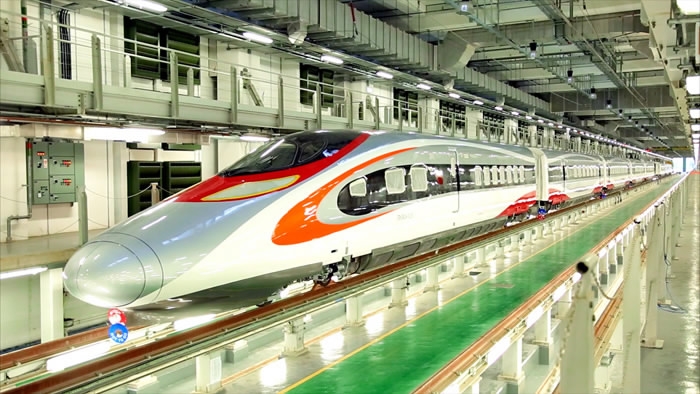
The Hong Kong Section of the Guangzhou-Shenzhen-Hong Kong Express Rail Link is scheduled for completion by the third quarter of 2018. /courtesy of MTR (Hong Kong's Mass Transit Railway Corporation)
The Hong Kong Section of the Guangzhou-Shenzhen-Hong Kong Express Rail Link is scheduled for completion by the third quarter of 2018. /courtesy of MTR (Hong Kong's Mass Transit Railway Corporation)
With a population of more than 66 million, it is roughly the size of big European countries like France, the UK or Italy; with an annual GDP of more than 1.3 trillion US dollars, it can compete with economies like South Korea, Russia, Australia or Spain.
The Greater Bay Area has been dubbed the fourth major bay area in the world by Chinese media, grouping it with renowned zones around New York and San Francisco in the US and Tokyo in Japan. Its population is much larger than that of the New York, San Francisco or Tokyo bay areas, while its economic size is bigger than that of the San Francisco Bay Area but smaller than that of the New York Metropolitan Area and the Greater Tokyo Area.
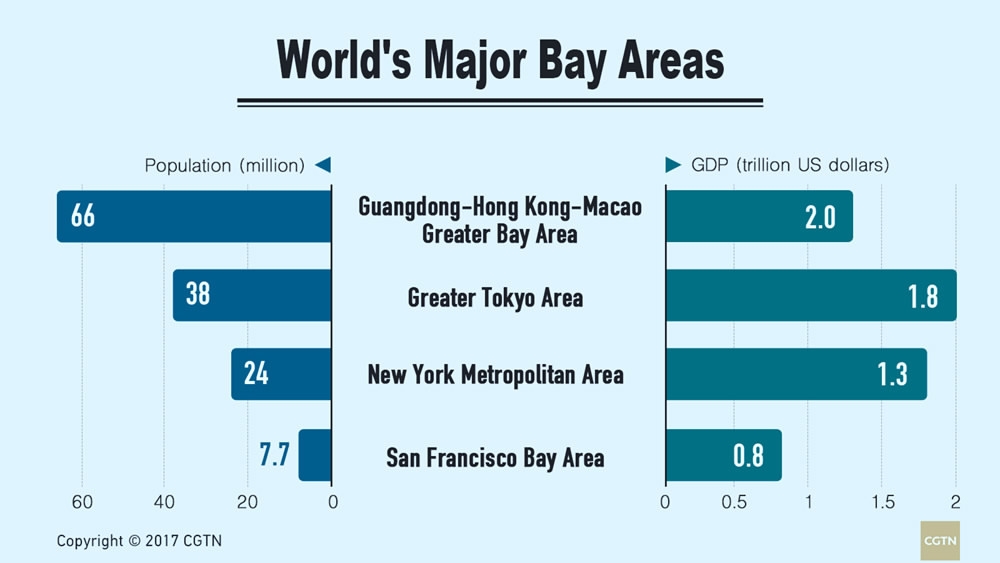
CGTN Graphic
CGTN Graphic
The Guangdong-Hong Kong-Macao Greater Bay Area is highly competitive thanks to its first-rate transport infrastructure. With the world's longest cross-sea bridge linking Hong Kong, Zhuhai and Macao and the Hong Kong Section of the Guangzhou-Shenzhen-Hong Kong Express Rail Link scheduled for completion by the end of 2017 and the third quarter of 2018 respectively, a "one-hour living circle" will be created, enabling closer connections and deeper integration between cities.
As the Greater Bay Area fulfills its potential, the new wing of Hong Kong will grow stronger and lift the "Pearl of the Orient" higher.
Related stories:

SITEMAP
Copyright © 2018 CGTN. Beijing ICP prepared NO.16065310-3
Copyright © 2018 CGTN. Beijing ICP prepared NO.16065310-3